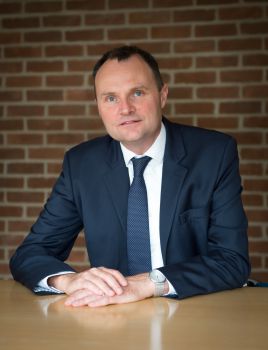View from the VC: 16 October 2020
By: Sean Armstrong
Last updated: Friday, 16 October 2020

Today, 16 October, the Vice Chancellor wrote to all staff. You can read the full email below:
We are continuing to adapt our approach to managing Covid-19 at the University to ensure we support our community in the best way we can.
I am confident that our new support package for self-isolating students – which includes money towards food and help with cleaning and laundry – is sector-leading and is greatly appreciated by our students. We are backdating payments to students who have already self-isolated this academic year.
We’ve outlined all the details to students directly and colleagues can find this information on the Student Hub.
We took this step first and foremost because it was clearly the right the thing to do. It also makes good common sense to make it as easy as possible for students to complete their period of self-isolation safely by removing barriers, such as needing to venture out for supplies.
We are also making sure that any student who tests positive for Covid gets a hot meal every day on us, recognising that they may not feel well enough to cook.
Anyone who shops online will know it can be difficult to get a grocery delivery slot at the moment, which is why we are pleased to have negotiated a number of next-day delivery slots for our students. I would like to thank all the colleagues who have made this happen – you truly are living the University’s values.
I am also pleased to report that the University has agreed to subsidise the daily meal plans that are offered by Sussex Food. We will pay a significant portion of the cost, so that the student contributes just £10, for which they receive three meals – breakfast, lunch and a hot dinner – plus snacks, made, packaged and delivered to their on-campus accommodation. This is entirely optional but gives students flexibility if they do not want to prepare their own food.
I also want to shine a light on the outstanding work that colleagues are doing to track and trace those who have had contact with a positive case. This is certainly not happening at every university and we have had received excellent feedback from the Cabinet Office and our local health partners about this. As soon as a report is made, our team springs into action, hitting the phones and having individual conversations to ensure that all the necessary people are self-isolating and then following up with other contact. We believe that our approach means that students at risk of Covid hear as much as five days before they would if we relied simply on the national test and trace system. As well as the dedication of our staff, this works so well because of the high compliance rate with our self-reporting form. It’s great to see our community taking their responsibilities so seriously.
It is only through this collective responsibility that we can keep our number of cases to a manageable level this term. I’m sure most of you will have seen the Government’s new three-tiered system for Covid restrictions. Brighton & Hove is currently at medium, the lowest level, but I know that everyone will be motivated to keep it there and not risk a local lockdown. To do this, we all need to play our part by not taking risks, staying home if we have symptoms and limiting our social interactions. We’ve shown that we can do it together, we just need to stay the course.
Our good relationships with our local authorities are really helping here. The mobile testing unit is back on a campus today for a third stint. This time it will remain in place for 10 days, until 25 October. Brighton & Hove City Council have also arranged for us to have a supply of home testing kits to deliver to symptomatic students, speeding up the process with the national system, which relies on Royal Mail to get the kits out.
The backdrop to all of this is our students’ education and, as I’ve said previously, I know that colleagues are working incredibly hard, both from home and on campus. I can report that, in the first three weeks of term, around a third of our sessions for students have been face-to-face and two-thirds remote. This is the blended model in action and I am hugely appreciative of everybody who is delivering for our students every day.
I have had really interesting discussions with academic colleagues, who feel that the blended approach has allowed students who learn in different ways to have a voice and become much more engaged in sessions. Online teaching allows materials to be better displayed and more interactive, students can feed back in real time via polls and highlight areas that are unclear, and I know that students are using the chat function to interact with each other much more during sessions. This feedback is really great to hear and very valuable for our future planning.
The inevitable question is what happens from January and the second semester. This will be worked through in the coming weeks and we will be taking stock and gathering feedback, starting with a pulse survey that we just launched with our students. As soon as we have any developments to share, we will do so.
Whatever the approach is in the spring, we can all take real confidence from how we all are handling an incredibly challenging situation this autumn.
With best wishes,
Adam
